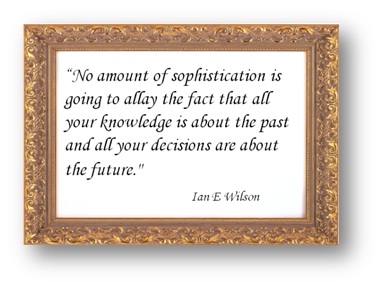Have you ever been given a pot of homemade jam? (Jelly to my American readers!) Perhaps you won some as a prize on the tombola stall at a school fair, whilst secretly hoping for that champagne bottle?

It usually comes in a recycled jar, carefully labelled by hand – often in the spidery handwriting of somebody else’s Aunt Agatha. If you’re anything like me, you’ll smile dutifully, and put it away in the dark corner of a kitchen cupboard for a few years. One day you’ll rediscover it, and put it straight into the bin (or if you’re unscrupulous, offer it to the tombola stall at the next school fair).
The trouble is, I don’t know Aunt Agatha. I’m sure she’s a very nice lady, who thought she was doing a wonderful job of preserving those blackcurrants for the future. However, I have no idea about her jam-making prowess, whether she thoroughly checked the ingredients for bugs or mould – or whether I’ll I reach the bottom of the jar and discover her false teeth. No thank you. I’d rather stick with a new pot of Bon Maman™ from the supermarket. I like it, I know exactly what I’m getting, and I can return it if there’s a problem. You know what the truth is? Don’t tell her, but as much as she loves to make it, nobody ever eats Aunt Agatha’s jam... We’re in the throes of a global recession, and on the edge of some pretty severe job reductions, particularly in the UK public sector. As this becomes a reality, I have no doubt that many enlightened but embattled managers will recognise implications for corporate memory, and look for “knowledge harvesting” solutions. This is where alarm bells start ringing for me.
Why the alarm? Well, I fear that management consultants and KM specialists can give false hope to organisations, and in the worst cases, prey on the fears and insecurities of managers.
“Don’t worry – we’ll interview all your key members of staff, and give you a nicely packaged product on a memory stick which represents each person’s knowledge, experience, relationships, favourite references etc. You can relax – your worries are over. The corporate knowledge is safe for future generations.”
In ‘Learning to Fly’, I described these kind of personal knowledge capture activities as “knowledge salvage”. I’m speaking from experience, as a consultant who has tried these techniques, and as a former corporate employee who has used them. Yes, there are some practical steps you can take in an emergency situation for a key individual small number of retiring staff - but you need to recognise that it’s a damage limitation exercise at best. All is not lost – but most of it is.
No matter how skilled and prepared the interviewer is, no matter how much you involve colleagues and networks in formulating the questions and iterating the content, no matter how slick and media-rich the final product is, and no matter how much you can persuade the “survivors” to actually use it... it’s a salvage operation.
Large scale downsizing is brutal. Surgery is usually carried out with a blunt instrument and valuable knowledge will be lost forever. Fact. I think it important that we face up to the limitations of KM, and manage expectations.
We know how it works. After a painful period of reduction and redundancy there is a period of adjustment as things begin to stabilise and the downsized world becomes a reality. After a couple of years management attention will turn back towards future growth - at which point the organisation will usually look to the outside for transformational leaders with fresh thinking to begin its new chapter. Doesn’t that sounds more like a future taste for Bon Maman™, and less likely that a jar of Aunt Agatha’s 3-year old preserve will be savoured?
So what should we do when faced with downsizing on a large scale? Nothing at all? Just let that knowledge walk out of the door carrying its redundancy package?
I’m not saying that - but I do encourage a healthy dose of pragmatism.
- Don’t structure knowledge around an individual. In two years time, nobody will remember who they were, what they achieved or which context they were working in. Identify which topics are critical to continuing current operations. Capture any key points against these topics. If you come across a memorable story or anecdote which illustrates the point, then take note of it.
- Focus where knowledge is technical or procedural, and can be captured as guidelines, checklists and recommendations. Embed these in a process or policy if you can.
- Pay attention to ‘know-who’, but remember that you can’t capture a relationship – all you can do capturing contacts and a small amount of background context. Relationships will have to be re-built from scratch by the new job-holder.
- If the pace of the downsizing allows it, place the emphasis on knowledge transfer methods to staff likely to remain. Examples include the use of future retirees as mentors, buddying, shadowing and participation in communities of practice.
- Work with HR to find creative ways to remain connected to leavers. It might be better to divert that knowledge retention budget towards securing ongoing knowledge access. The ability to access an alumni network, or to have a timely telephone call or meeting with a former employee will easily outweigh the effort required to anticipate all possible questions, capture the answers up-front and bury them in SharePoint.
Above all, challenge yourself with the question: “If this knowledge is important to the future, what is the best can I ensure that it’s actually used?”. That will stop you, or your consultant, from getting too carried away. I don’t believe that you can be a meticulous corporate historian and an effective corporate strategist at the same time; you’ll only end up in a jam.
With apologies to Aunt Agatha. Taken from my upcoming column in the next edition of Inside Knowledge.





 Urinals. Do you spend much time looking at them?
Urinals. Do you spend much time looking at them?

 I had the pleasure last week of spending two days in Bangalore with
I had the pleasure last week of spending two days in Bangalore with